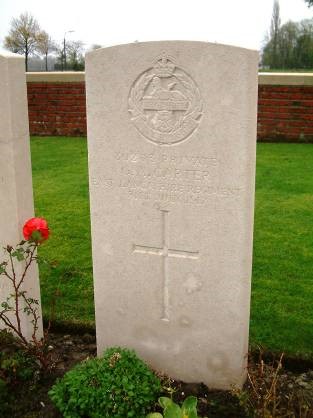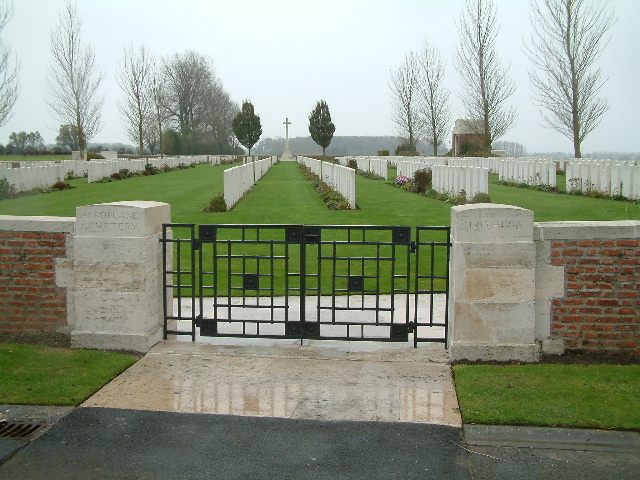Name
George Augustus Carter
Conflict
First World War
Date of Death / Age
31/07/1917
35
Rank, Service Number & Service Details
Private
30203
East Lancashire Regiment
2nd Bn.
Awards: Service Medals/Honour Awards
British War and Victory medals
Cemetery/Memorial: Name/Reference/Country
AEROPLANE CEMETERY
II.C.13.
Belgium
Headstone Inscription
Not Researched
UK & Other Memorials
Aston War Memorial, St. Mary’s Church Roll of Honour, Aston, We are not aware of any memorial in Aston End
Pre War
George was the eldest son of Edward & Emma Carter of Aston End. He was one of three brothers who were serving during the war both of whom were, at the time of his death, Prisoners of War.
Recorded as born in Aston and living in Stevenage when he enlisted in Hertford.
Wartime Service
He was to lose his life on the first day of a major British offensive, The Battle of Passchendaele, which was launched on 31st July 1917 and continued until the fall of Passchendaele village on 6th November 1917.
The offensive resulted in gains for the Allies but was by no means the breakthrough General Haig intended, and such gains as were made came at great cost in human terms. The village of St. Juliaan lies on the Hanebeek, one of the small streams that drains the fields in this area. On the 18th July 1917 a heavy preliminary artillery bombardment began which lasted for the ten days prior to the launch of the attack. The bombardment was made by 3,000 guns which expended four and a quarter million shells into the surrounding ground. Given such an onslaught the German Fourth Army fully expected the attack and the element of surprise was entirely lost. Added to this was the fact that the area was suffering the heaviest rains it had seen for 30 years and this, combined with the shelling, turned the ground into a hellish morass. On the 31st July 1917 the Battalion attack was set to commence at 3.50am and their objective was the German trenches at Bellewaerde Ridge. Although the Battalion managed to reach its objective quite quickly their supporting troops, the men of the 17th Manchester Regiment, were held up and as a result the right flank was exposed. The Germans quickly exploited this advantage and attacked the Battalion with heavy machine gun fire, causing considerable casualties. A total of 92 men were either killed or missing, one of whom was George Carter. He is buried in the Aeroplane Cemetery, Ypres, Belgium.
George was reported missing and was still reported as that in April 1918.
Additional Information
An article published in the Hertfordshire Express on the 4th May 1918 reports that George's brother E. W. Carter had been missing since 21st March. It makes reference to their brother F. Carter being a prisoner, and that George had been missing since 31st July 1917. www.stevenageatwar.com
Acknowledgments
Jonty Wild, Derry Warners
Paul Johnson



